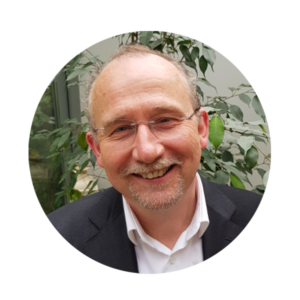Recording of session 1 from Prof Samuele Cortese – you will need your password to access this
Slides from session 1 from Prof Samuele Cortese – you will need your password to access this
Recording from session 2 from Prof Edmund Sonuga-Barke – you will need your password to access this
Slides from session 2 – from Prof Edmund Sonuga-Barke – you will need your password to access
About the days
Prices and booking
About the speakers
About the days
Friday 28 May, Professor Sam Cortese
Key takeaways
- To be aware of, and critically appraise, available evidence synthesis on the pharmacological and non-pharmacological treatments for ADHD
- Consider whether therapeutic intervention for ADHD depends on scientific progress.
- To appreciate to which extent current guidelines are based on empirical evidence.
Friday 4 June, Professor Edmund Sonuga-Barke
Key takeaways
- To understand ADHD as an evolving concept.
- To recognise the current empirical existing challenges to its scientific validity.
- To consider alternative formulations.
- To explore the neurodiversity movement for ADHD.
Our CPD ‘Masterclass Series’ delivers advanced, evidence-based training for those working in CYP mental health, to build upon their skills, knowledge and experience. They are interactive sessions, consisting of a series of lectures delivered by world-renowned experts in the field who focus on the latest research, and the implications for best-practice.
Neuroscience provides a rational basis for the discovery of new and/or more effective treatments for ADHD. Over the last twenty years our view of ADHD neurobiology has changed considerably, with modern views emphasising its complexity and heterogeneity. This provides a potential platform for personalised therapeutic approaches. Our increasing appreciation of the plastic nature of the brain during sensitive developmental windows highlights the potential value of psychological treatments delivered early in development. There is no evidence, from blind raters, suggesting that non-pharmacological strategies for ADHD are efficacious for ADHD core symptoms. The effect sizes for ADHD drugs from short term trials are amongst the highest not only in psychiatry but also in general medicine. Network meta-analyses aimed to rank ADHD treatments according to their efficacy/safety have been published or are being conducted.
“Excellent Masterclass! Very informative with clear practical tips, with clear articulate speakers.” Previous delegate
Prices and booking
£80.00 (approx €93, $110) ACAMH Members
£120.00 (approx €138, $164) Non-Members
Prices are for both days. Plus exclusive access to all lectures for up to 28 days.
To book simply click the button at the top of the page, or here, and fill in the details. ACAMH Members should sign in first to ensure that they get their discount.
If you are not an ACAMH Member now is a great time to join and make a saving on this event. Take a look at the different levels of membership on offer.
Remember ACAMH is a charity and any surplus made is reinvested back to the benefit of our members and the industry as a whole.
About the speakers

Edmund Sonuga-Barke is currently Professor of Developmental Psychology, Psychiatry and Neuroscience working in the School of Psychiatry at the Institute of Psychology, Psychiatry and Neuroscience, King’s College London. He is an Honorary Skou Professor at Aarhus University, Denmark. He is Editor-in-Chief of the Journal of Child Psychology and Psychiatry. His work integrates Developmental Psychopathology and Neuroscience perspectives employing basic developmental science approaches to study the pathogenesis of neuro-developmental and mental health conditions; their underlying genetic and environmental risks, mediating brain mechanisms and developmental outcomes. Motivated by his own childhood experience of growing up with learning difficulties he has a particular interest in ADHD and related disorders. In 2016, Prof Sonuga-Barke was elected a Fellow of the Academy of Medical Sciences and 2018 a Fellow of the British Academy.

MD, PhD, Professor of Child and Adolescent Psychiatry Professor at the University of Southampton and Honorary Consultant with Solent NHS Trust.
Samuele Cortese is a child psychiatrist, trained in Italy, France, and in the United States. He is also Adjunct Associate Professor with the New York University (NYU). Dr Cortese’s main research interests are around the epidemiology, neurobiology and treatment of neurodevelopmental disorders, in particular ADHD, as well as on sleep disorders in children and adolescents. He has published more than 200 peer review papers (H index: 56).
Professor Cortese sits on the editorial board of several journals in the field of child mental health, including JCPP, JAACAP, Attention Deficit Hyperactivity Disorders, CNS Drugs, Journal of Child and Adolescent Psychopharmacology and Evidence Based Mental Health. Sam is a member of the European ADHD Guidelines Group and acts as the ACAMH Academic Secretary.


